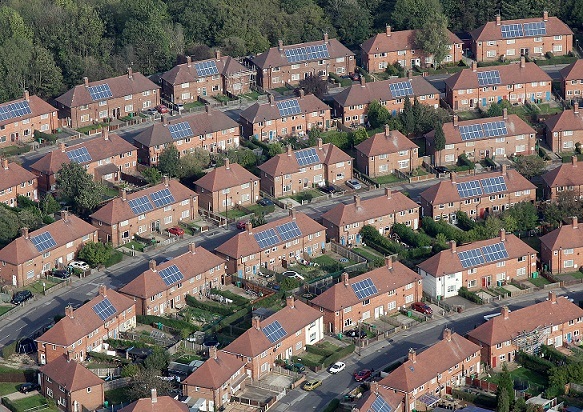Customers of Northern Powergrid (NPg) have cut their electricity consumption by an average of 11% as a result of a new trial testing the effectiveness of mobile gaming to incentivise residential demand side response (DSR).
More than 2,000 customers are competing for cash prizes by turning off home devices, in what is thought to be the first ever trial to demonstrate how mobile games can help reduce consumption at times of high demand.
The DNO worked with Newcastle University and gamification firm GenGame to develop a free mobile game. Customers were recruited via social media platform Facebook and sent self-install equipment to monitor their consumption in real-time on their phone.
During periods of high demand, players receive an alert prompting them to reduce their consumption in exchange for points, which are used to increase their chances of winning some of the £350 available each month.
NPg has said that the average turndown has been around 305W, however some have cut as much as 4.9kW by turning off higher demand appliances such as electric vehicles.
Stephane Lee-Favier, chief executive of GenGame, said: “Pausing your washing machine is only worth around 10p, which isn’t going to change customers’ behaviour. However, if you aggregate lots of small actions into one pot and create a £100 monthly prize it becomes much more interesting.”
He added that a challenge GenGame sought to overcome was ensuring people remain engaged during periods of inactivity, with only two of three GenGames occurring each week.
The solution was to introduce GenBlast, which allows participants to win ‘power-up’ points while suggesting how they can reduce energy consumption and win more in the main games.
During the development of the gaming platform, it was found that by placing ads on Thursday and sending out equipment first class to arrive on Saturday, they could increase the number of people setting it up from 35% to 75%. Improvements like these have reportedly cut the cost of signing up customers by around 90% to just a few pounds per person.
A new approach to the rise of EVs
Identifying new ways of managing the increased take-up of EVs is a key part of the three-year Activating Community Engagement project, with NPg saying charging a typical electric vehicle can require 7-10kW in contrast to average household daytime consumption which sits at around 0.5kW.
“Household electricity use will grow significantly as electric vehicles and heat pumps become mainstream, increasing demand on the network. Mobile games offer a fun solution to help manage this demand, rewarding our customers for reducing their consumption at peak periods,” said NPg’s innovation project manager, Andrew Webster.
“If we see an increase in electric vehicles in one area we could just run a GenGame and reward people for charging their car when there is spare capacity on the network. As long as the incentive costs less than upgrading the local network, we have a winner,”
The next stage of the project will see a new GenDrive project explore how mobile games can incentivise EV drivers to use their vehicles to support the grid. NPg and its project partners will work with Ecotricity and EnAppSys on the £400,000 project, which is part funded by a £30 million government competition run earlier this year which saw 20 vehicle-to-grid trails awarded.





